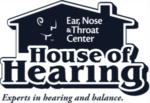Key Takeaways
- Combat stress-induced tinnitus by practicing progressive muscle relaxation, enhancing muscle awareness, and potentially reducing its impact.
- Employ Tinnitus Retraining Therapy (TRT) in quiet spaces, allowing gradual desensitization to tinnitus, lessening emotional reactions over time.
- Manage tinnitus through mindful meditation, fostering acceptance of thoughts and sensations, gradually diminishing its impact on overall well-being.
- Seek professional advice if tinnitus causes distress. At House of Hearing, we provide expert hearing services for Salt Lake City, Draper, and Logan.
Three Exercises to Help Improve Tinnitus
Tinnitus, the perception of noise or ringing in the ears, can be a frustrating and persistent issue for many people. While there’s no definitive cure, certain exercises and techniques can help manage and mitigate its effects.
Understanding Tinnitus
Tinnitus is a non-auditory, internal sound that can be intermittent or continuous, in one or both ears, and either low or high pitch. It can develop as a symptom of age-related hearing loss, ear injury, or a circulatory system disorder.
Although incurable, management techniques can help. Here are three exercises designed to help you possibly reduce your tinnitus symptoms.
Exercise 1: Progressive Muscle Relaxation
Stress and anxiety can exacerbate tinnitus. Progressive muscle relaxation is a method that helps reduce stress, promoting relaxation and a sense of calm.
- Find a quiet, comfortable place to sit or lie down. Start by taking a few deep, calming breaths.
- Beginning with your toes, tense your muscles as tightly as you can for about five seconds.
- Relax your muscles, feeling the tension release. Pause for about 10 seconds.
- Move on to another muscle group, such as your leg muscles. Repeat the process.
- Continue through each muscle group in your body, working your way up from your toes to your head.
- As you do this exercise regularly, you may find that it becomes easier to distinguish between tense and relaxed muscles, helping you release tension more effectively and better manage your tinnitus.
Exercise 2: Tinnitus Retraining Therapy (TRT)
TRT is an exercise used to retrain your brain to perceive the noise in a less bothersome way.
- Find a quiet, comfortable place to sit. If your tinnitus is more noticeable in quiet places, you can use a sound generator or white noise machine for background noise.
- Allow your tinnitus to enter your consciousness. Try not to react to it, but rather acknowledge its presence.
- Engage in deep breathing or another relaxation exercise. As you do, let your perception of the tinnitus fade into the background.
- Repeat this exercise regularly. Over time, you may find that your brain becomes more accustomed to the tinnitus, reducing your emotional reaction to it.
Exercise 3: Mindful Meditation
Mindful meditation has shown to be effective in managing tinnitus by promoting acceptance and relaxation.
- Choose a quiet, comfortable place to sit. Close your eyes and take a few deep breaths.
- Focus on the sensation of your breath entering and leaving your body.
- Allow thoughts and sensations, including your tinnitus, to enter your consciousness. Instead of reacting to these thoughts and sensations, acknowledge them and let them pass.
- If your mind wanders or becomes focused on your tinnitus, gently guide your attention back to your breath.
- Try to practice mindful meditation for a few minutes each day. As you become more comfortable with the practice, you can gradually increase the length of your sessions.
Seek Help From A Professional
While these exercises may help you manage your tinnitus, it’s important to seek medical advice if your tinnitus is causing significant distress or if it began suddenly. At House of Hearing, we can help you by examining your hearing and referring you to a specialist if needed.
Tinnitus can be bothersome and affect your quality of life. If you are dealing with persistent tinnitus in Salt Lake City, try these exercises to see if they can help you manage your perception of tinnitus. If your tinnitus is still unmanageable, contact us. We offer expert hearing services for the people of Brigham City, Draper, and Logan.


